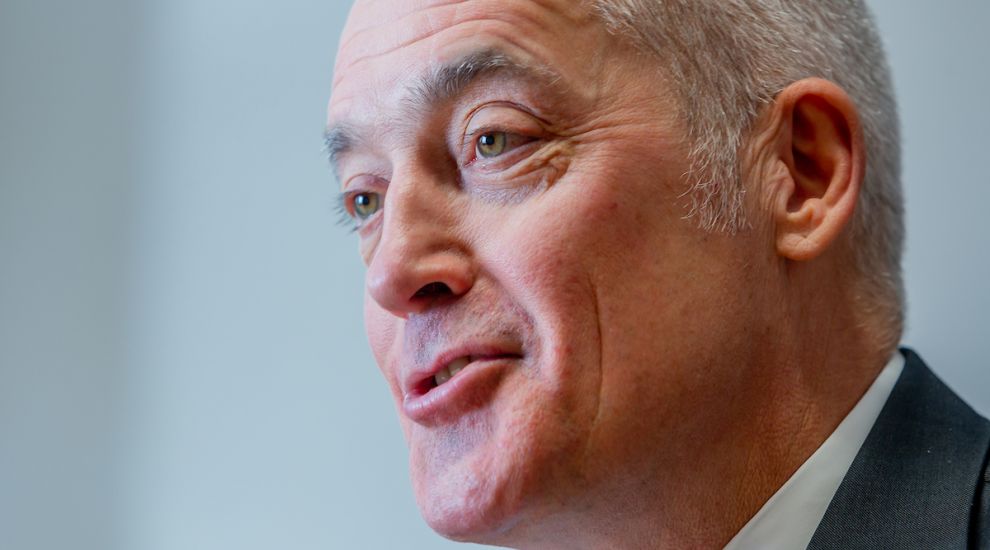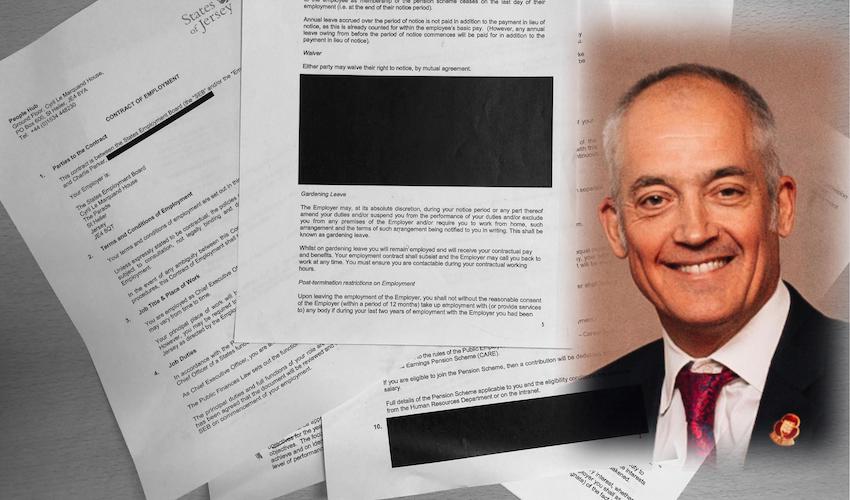

A watchdog has blasted the body responsible for setting public sector workers’ pay for its “unnecessary secrecy” over HR discussions, and failing to act in the public interest by refusing to disclose the CEO’s contract conditions.
The criticism from Comptroller and Auditor General (C&AG) Karen McConnell came in a new report into the States Employment Board (SEB) released this morning.
In it, she slammed the group – made up of five politicians, supported by advisers – as “not fit for purpose”, urging a fundamental review of its operations.
The group was established in 2005 as “statutory employer of all States employees”, with responsibility for ensuring the public service is run economically and efficiently, ensuring the health, safety and wellbeing of all employees and issuing Codes of Practice on all aspects of Human Resources.

Pictured: Ms McConnell says the role of the SEB is too broad.
But Ms McConnell wrote that SEB has been given a task that “it is not realistically in a position to perform."
She said the group’s functions were too broad, and ill-structured, meaning that they were failing to carry out many of their key obligations.
She further blasted the SEB for a lack of transparency, pointing to the briefness of its reports and the lack of minutes. She also referred to the SEB’s refusal to publish the terms and conditions of the Chief Executive, Charlie Parker (pictured top) - “despite significant public interest in the remuneration of senior staff."
Express fought for around seven months before the Information Commissioner ruled in favour of releasing his contract – something the C&AG noted in her report.
On the topic of high-level appointments, Mrs McConnell criticised the SEB, who must review all pay proposals over £100,000, for not developing “overall principles for the remuneration of senior staff."

Pictured: The C&AG identified significant weaknesses in the framework for the oversight of Human Resources (HR) management.
She later expressed concern about “gaps or ambiguities in arrangements” around the employment practices of States-owned companies and 'Arm’s Length Organisations', and oversight of interim staff.
She noted that the SEB failed to gather key information on three of Mr Parker’s interim ‘Transition Team’ recruited in October 2017.
This included how their jobs had been evaluated, what benefits they would bring to the government, and how their performance would be monitored.
While the review didn’t touch on the current government pay dispute, the C&AG observed that, “...the time devoted to pay negotiations suggests disproportionate focus on this aspect of SEB’s work."
In reality, she said there were other items that should be focused on, with the SEB also responsible for the training and development of employees, among other things. In 2018, however, just 0.9% of their time was dedicated to this.

Pictured: The C&AG said the SEB had been too secretive when refusing to release the terms and conditions of the Chief Executive, Charlie Parker.
Mrs McConnell was yet more critical as she probed the restructure of the government’s HR Department as the ‘People Hub’, which has nearly 30 employees and is contacted around 350 times a day.
“Its staff do not have the expertise or experience required – [the People Hub] is routinely described as a ‘call centre’ staffed by those ‘at the beginning of their HR careers’,” she said.
She continued that there was a “significant disparity” between the number of calls logged and data recorded, meaning that long-term trends – including on sickness and absence - can’t be monitored.
Detailing the impact of this, the C&AG explained: “In May 2018 the Interim HR Director for Health and Community Services noted that due to a ‘blockage with the People Hub’ over 400 cases of sickness absence were not being managed in compliance with the Code and policies… This meant that, instead of moving to either ‘return to work’ or a formal management of sickness absence, staff were being informally managed for up to six months at a total estimated cost of £7.2 million per annum, including staff cover costs of £4.2 million.”
Finally, she said the SEB’s statutory framework does not protect the independence of the Jersey Appointments Commission (JAC) – an independent body to oversee high-level recruitment - as the States Assembly can dismiss a Commissioner on any grounds or direct them to prepare a report on any matter.

Pictured: Karen McConnell, Comptroller and Auditor General.
The C&AG also noted a conflict of interest between the JAC’s role in the oversight of an element of HR activities, while its resources are provided by a senior HR professional.
Concluding her report, the C&AG recommended a fundamental review of the framework for the oversight of human resources of the government.
While recognising that SEB has initiated changes in how it works, as part of the move to the government’s new Target Operating Model under the CEO’s OneGov restructure, the C&AG says “fundamental change” is required so that SEB can demonstrate that it is exercising “effective oversight of human resources across the States. “
“Such change inevitably requires enhancement of the skills and resources to support SEB and the JAC in discharging their responsibilities,” she wrote.
“The corporate HR function has been under-resourced and this needs to be addressed to help secure the changes that are urgently needed. The preparation and implementation of a comprehensive People Strategy is essential to help set the direction for the future and drive effective implementation.”
Comments
Comments on this story express the views of the commentator only, not Bailiwick Publishing. We are unable to guarantee the accuracy of any of those comments.